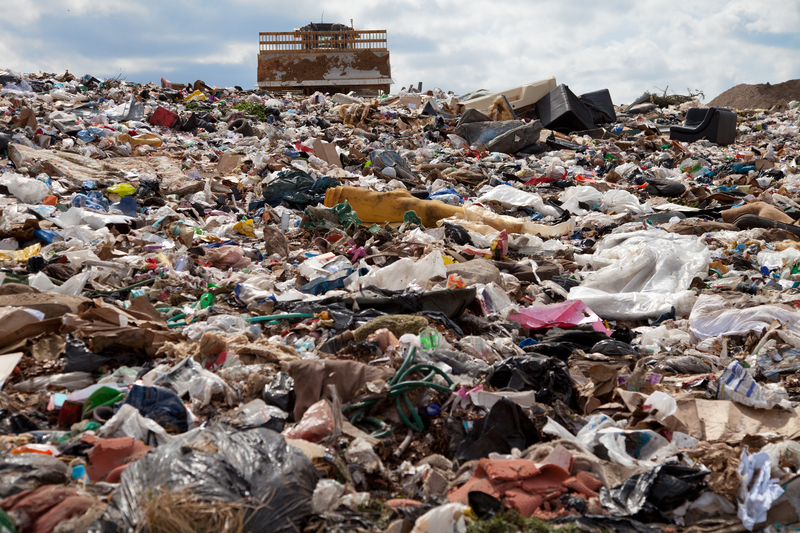Bulky Waste Items: Top Tips for Saving Money on Your Next Cleanup
Bulky waste items--think old furniture, mattresses, large appliances, garden debris, and construction leftovers--can easily pile up and become a nuisance. Whether you're moving, decluttering, or handling a home renovation, dealing with these large items is rarely simple or cheap. However, with a little know-how, resourcefulness, and planning, you can dramatically cut costs during your next bulky waste cleanup.
In this comprehensive guide, we share the top strategies to help you save money while responsibly and effectively getting rid of large unwanted items. Master these tips, and you'll keep your wallet happier and your home clutter-free!
Understanding Bulky Waste: What Qualifies as Bulky Waste Items?
Before diving into money-saving tips, it's important to clarify what constitutes bulky waste items. These are generally objects that cannot fit in your standard trash or recycling bin due to their size or weight. Examples include:
- Sofas and couches
- Mattresses and box springs
- Large tables, desks, and chairs
- Old refrigerators, washers, and other appliances
- Carpets and rugs
- Door frames, windows, and construction debris
- Garden waste and tree branches (in bulk)
Pro tip: Always check your local municipality's website for lists of accepted and non-accepted bulky waste items, since regulations can vary.

Why Can Bulky Waste Removal Be So Expensive?
The process of bulky waste removal can trigger unexpected costs for several reasons:
- Special handling fees: Many waste facilities charge extra to process large or heavy items.
- Transport costs: Hiring a truck or professional service can quickly add up.
- Landfill charges: Disposal and dumping fees for bulky waste are often higher than for regular trash.
- Environmental surcharges: Certain bulky items, like appliances, may require environmentally safe disposal and incur surcharges.
- Permit costs: Some municipalities require permits for dumping or large pickups, which can inflate your expenses.
With these potential costs in mind, let's explore how you can save money without sacrificing convenience or compliance.
Top Tips for Saving Money on Bulky Waste Items Disposal
1. Plan Ahead and Sort Your Waste
Don't let your cleanup turn into a last-minute scramble. Begin by making an inventory of all your bulky waste items. Separate them into categories:
- Items in usable condition (e.g., furniture, appliances)
- Completely broken or unusable items
- Items that could be recycled or donated
Sorting your items allows you to explore cheaper and even free alternatives for disposal before heading straight for landfill solutions.
2. Try Donating or Selling First
One person's trash could be another's treasure! If your bulky items are still in relatively good shape, there are several ways you can save money--or even make money--by letting others take them off your hands:
- Local charities and thrift stores: Many accept furniture and appliances. Some even offer free pickup!
- Online marketplaces: Use Facebook Marketplace, Craigslist, or OfferUp to sell or give away large items locally.
- Community groups: Join local "buy nothing" groups or neighborhood forums to give away bulky waste items for free.
By donating or selling, you avoid landfill fees, reduce disposal volume, and help your community.
3. Utilize Municipal Bulk Collection Days
Many cities and towns offer free or low-cost bulky waste collection for residents on scheduled days. Here's how to take advantage:
- Check your city's calendar: Look for annual or quarterly bulk pickup dates.
- Register if required: Some municipalities need you to schedule or notify them in advance.
- Follow the rules: Make sure your items are placed curbside according to guidelines to avoid fines.
Be strategic and discard as much as possible during these events to maximize your savings.
4. Use Local Recycling Centers and Drop-Off Days
For items that can't be easily reused or donated, many communities host special recycling or hazardous waste drop-off events. These can be especially useful for:
- Mattresses
- Appliances
- Electronics (TVs, computers)
- Large metal items
Some centers have year-round drop-off points with either no fees or reduced rates for residents.
5. Pool Resources with Neighbors
If you know your neighbors are also planning a cleanup, why not collaborate?
- Share a dumpster rental: Splitting the cost saves everyone money.
- Organize a community collection: Bulk haul-off companies often offer discounts for a single large pickup.
- Work together to transport items: Sharing a truck for a landfill or donation center run splits costs and emissions.
Pooling resources is a smart, eco-friendly way to lessen the individual cost burden.
6. Consider Renting a Dumpster--But Size Matters
While renting a dumpster is not always the cheapest option, it can be cost-effective if you have a significant volume of bulky waste items and no other disposal options. Keep these points in mind:
- Choose the right size: Overestimating means wasted money. Underestimating can result in overage fees.
- Get quotes from multiple providers: Local haulers may offer better rates than national chains.
- Watch for hidden fees: Ask about weight limits, duration, and any surcharges.
Pro tip: Fill up your dumpster efficiently--pack items tightly, break down large pieces, and avoid air gaps to maximize space.
7. DIY Bulk Waste Hauling
If you own or can borrow a pickup truck, hauling your own bulk waste items to a landfill or recycling center can be much cheaper than hiring a junk removal service. Follow these tips:
- Research local fees: Some facilities charge by weight, others by vehicle size. Residents may get discounts.
- Load efficiently: Disassemble large furniture and stack items to maximize each trip.
- Ensure safety: Secure all loads to avoid fines or accidents on the road.
Doing it yourself takes more effort but can yield significant savings.
8. Don't Forget About "Free" Waste Disposal Days
Check with your local waste management authority for "free dump days." Several times a year, municipalities let residents dispose of bulky waste items without charge at designated sites.
Be sure to arrive early--these events are popular and can get crowded!
9. Repurpose or Upcycle Before Disposing
Before sending bulky waste items to the landfill, consider creative alternatives:
- Convert old furniture: An unused dresser could become garage storage or a garden planter after a simple makeover.
- Salvage parts: Remove metal, wood, or hardware for future DIY projects.
- Use construction debris: Bricks, pallets, and lumber can find new life in landscaping or home improvement.
Repurposing not only saves on disposal fees, but supports sustainability too!
10. Know What Not to Do (to Avoid Fines & Extra Costs)
Cutting corners with bulky waste disposal can backfire. Watch out for these costly mistakes:
- Illegal dumping: Leaving items on vacant lots or curbs outside of collection periods is a fineable offense.
- Ignoring hazardous materials: Items like refrigerators, TVs, or paint must be properly processed--don't mix with regular waste!
- Poor timing: Missing scheduled pickups means you'll have to pay for private collection or storage.
- Not following guidelines: Exceeding weight limits or placing items incorrectly can incur surcharges or rejected pickup.
Special Considerations for Bulky Waste Disposal
Appliances ("White Goods")
- Look for programs that offer free appliance recycling, often in partnership with energy companies or local governments.
- For working appliances, check for trade-in deals or resale opportunities.
Mattresses
- Some mattress stores offer free removal with purchase.
- States like California have mattress recycling initiatives--find the nearest drop-off location for a cheaper alternative to landfill.
Electronics
- Most municipalities and major retailers sponsor regular e-waste recycling events--these are often free and ensure environmentally safe processing.
- Never dispose of electronics in standard trash or you could face fines.
Frequently Asked Questions About Bulky Waste Items
What's the cheapest way to dispose of bulky waste?
Depending on local resources, free municipal collection days, direct donations, or self-hauling to recycling centers are often the least expensive options for bulky waste removal.
Is hiring a junk removal company worth it?
While convenient, junk removal services can be costly--especially for large volumes. Always compare prices, check for hidden fees, and see if your city offers cheaper alternatives first.
Can I leave bulky waste on the curb?
Only if your municipality provides curbside collection for bulky items on approved dates. Random dumping can result in hefty fines.
How can I avoid hidden fees in bulky item disposal?
Carefully read service agreements, confirm pickup or landfill fees, and ask about weight or size limits beforehand. Always double-check municipal rules to avoid surcharges or penalties.

Quick Checklist: Save Money on Bulky Waste Disposal
- Sort items for donation, recycling, reuse, or final disposal
- Use free community collection events whenever possible
- Team up with neighbors for shared costs
- Compare dumpster rental sizes and rates
- Haul items yourself if safe and feasible
- Repurpose or upcycle before discarding
- Follow all municipal guidelines to avoid fines
Conclusion: Smart and Thrifty Bulky Waste Cleanup
Getting rid of bulky waste items doesn't have to shred your budget. With careful planning, creativity, and a little extra research, you can clear out large unwanted items while keeping disposal costs minimal. Always prioritize donating, recycling, or repurposing over landfill options, leverage local municipal services, and join forces with neighbors for optimal savings. Remember, cost-effective bulky waste disposal is good for the wallet--and even better for the planet!
Start your next home cleanup project with these smart strategies, and experience a simpler, cheaper, and more sustainable approach to getting rid of bulk waste.